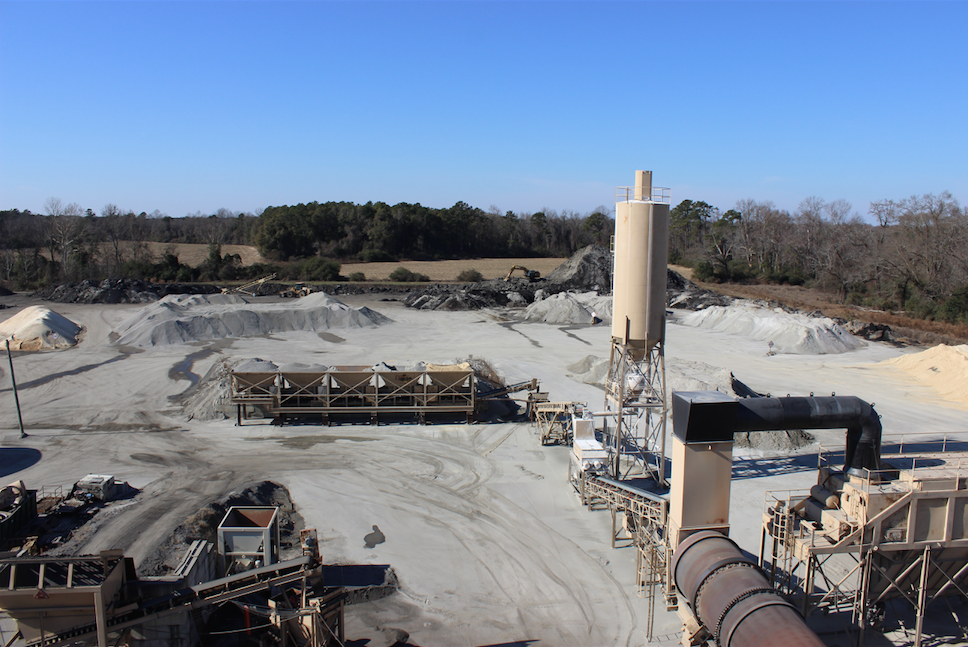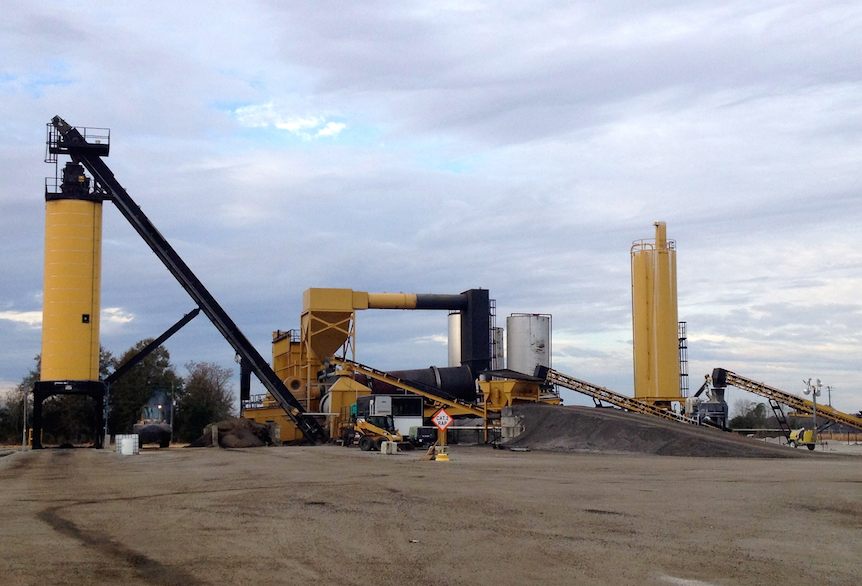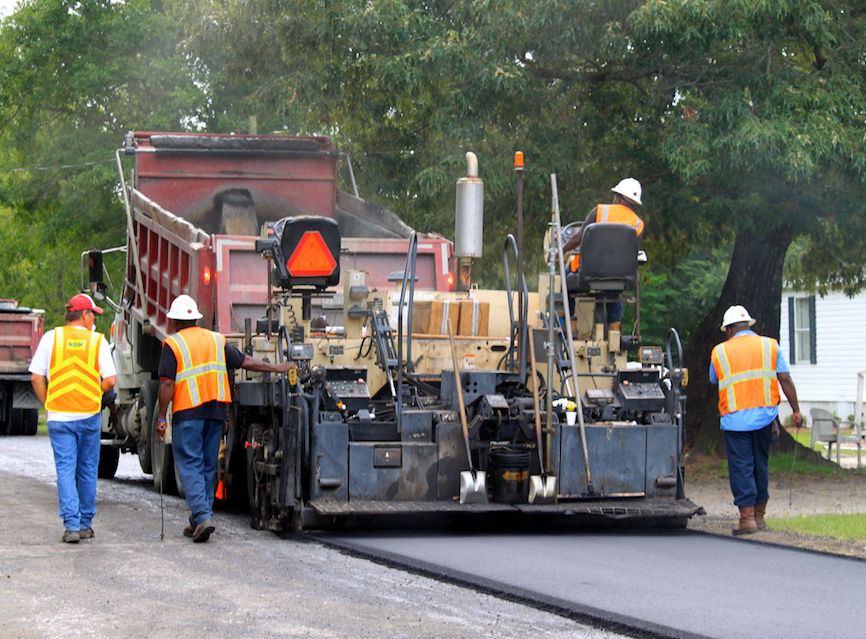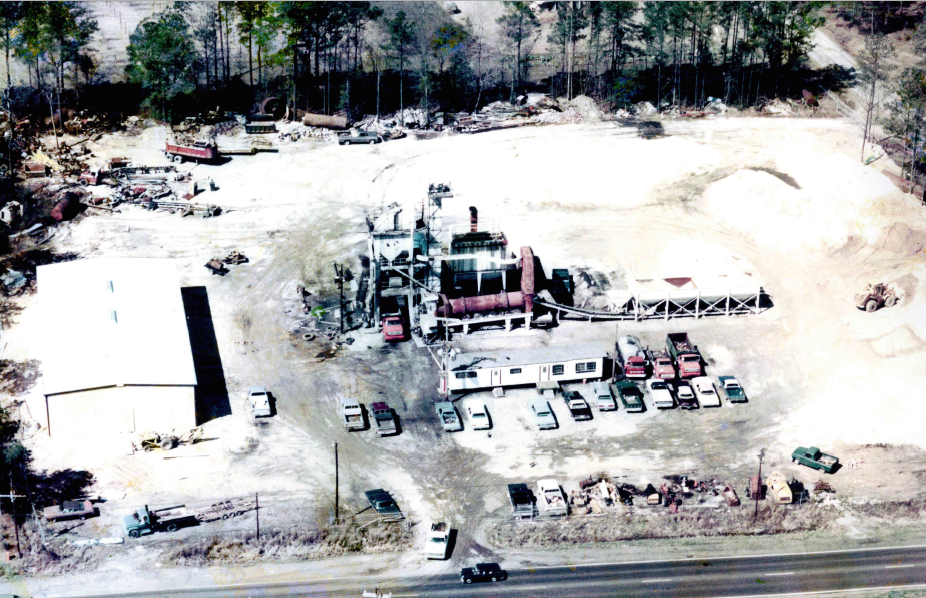Palmetto Corp Finds Success in Independence
BY AsphaltPro Staff

The story of Palmetto Corp, Conway, S.C., runs three generations deep. In the 1960s, Mack Godwin began offering asphalt patching and driveway paving as part of his company, Godwin Construction. In 1987, his son Marshall struck out on his own to offer these services on a larger scale and Palmetto Corp was born. Marshall’s son, Shawn Godwin, who is now the CEO of Palmetto Corp, came on-board in 1993 and transitioned the company into municipality work. They took on more roadway, residential street, subdivision, city streets and government jobs, including DOT and airport work.
“We’re the only company among our competitors that does everything in-house,” Shawn said. Palmetto Corp offers grading, crushing and other services in addition to asphalt paving and maintenance. Shawn said offering these services in-house gives the company more flexibility.
“Our project managers’ goal is to get their projects finished quickly with the highest quality possible,” he said. “If we subcontracted work out, our schedules would be more dependent on our subcontractors’ schedules….Having crews in-house, they can get work done when they need to.”
Shawn estimates that 80 percent of the company’s business is asphalt paving.

Having hired 80 new employees in 2015, Palmetto is always looking for opportunities to promote crew leaders from within.
“When you have asphalt manufacturing plants, you’re naturally going to do larger projects,” Shawn said. “Some of our jobs don’t require grading or concrete. The dollar amount of asphalt resurfacing projects allows us to do volume very quickly.”
Offering such a variety of services means Shawn has to find project managers that have specific experiences and skill sets, whether that’s in paving or reclamation, etc., “and let them lead the charge.”
To empower his project managers, Shawn has a weekly conference call with all of them, who are often spread around the state of South Carolina, every Monday at 10 a.m. The group reviews the past week and talks about upcoming projects. They are encouraged to ask for help when needed, whether that means adding another crew or a piece of equipment. “It’s key to open that line of communication.”
As the company’s average project size and client list continues to grow, Shawn has had to find qualified employees quickly. In 2015, Palmetto hired 80 more employees; its total employee roster now reaches more than 350 people. Most new hires are recommended by current employees.
“We get the word out that we need more people, and the word just gets around to all our staff,” Shawn said. “We’ll probably continue expanding, so we’ll need to be creative on how we find that workforce and improve our training system.”
Beyond word of mouth, an active HR department and attendance at job fairs and college fairs, Shawn said promoting from within will also help recruit good employees who will see the potential for advancement.
“I want to be able to take crew leaders, put some good people around them, and create new crews,” Shawn said. Currently, Palmetto has 24 crews—each of which may be working on a different job each day.
Shawn’s favorite projects are those that require one of each type of Palmetto’s crews, six of which are paving crews. Recent examples include widening a 5-mile section of road from two lanes to five lanes on Highway 76, near Timonsville, and widening 8 miles from two lanes to four near Darlington.
“Anything that pulls in the whole team is what I like,” Shawn said. But, he said, his favoritism tends to lean toward asphalt projects. “I enjoy when we take existing concrete roads, repair them and then overlay them with asphalt. Once it’s covered with asphalt it will always be asphalt.”

Palmetto Corp acquired its first plant when the owners purchased Godwin Construction in 1987. Today Palmetto Corp has three asphalt plants—one in Conway, South Carolina, one in Bishopville, and one in Florence. Photos courtesy Palmetto Corp.
Plant Independence
Not only does Palmetto’s size and variety of services provide the company greater independence, but the company also owns three asphalt plants.
“If you want to expand to where you’re not just doing patching, driveways and parking lots, but also doing roadwork, you need more asphalt,” Shawn said. “To be competitive in that business, you have to have your own plant.”
When Palmetto Corp began in 1987, the company already had its own asphalt plant; it had kept the plant originally purchased by Godwin Construction.
“Having our own plant makes scheduling more efficient and easy,” he said. “There are headaches in it as well, in maintaining it and finding people to run it, but for larger projects you have to have it to be competitive in our area.”
Now the company owns three asphalt plants at the company’s headquarters in Conway, and also in Bishopville and Florence. All three are drum mix plants and make more than 20 types of base, intermediate and surface mixes not only for Palmetto projects, but also for other customers.
Each plant is also home to a satellite office. The main office is home to accounting, estimating and other business services, and the satellite offices attached to the asphalt plants also help maintain equipment. Most of the company’s projects are within 60 miles of each of its asphalt plants, so the plant offices also act as a hub for those regions.
“If you have to buy asphalt from someone else, you’re on their time schedule,” Shawn said. “You can say you need asphalt, but if they’re not running that day, if they’re making asphalt for their own projects, or if they have a bunch of other buyers, it can be hard to get what you need.”

Five of Palmetto’s 24 crews are paving crews.
Stand Out
One trend Palmetto Corp sees is South Carolina DOT’s interest in reclamation services, which Shawn estimates has quadrupled compared to just four years ago.
“South Carolina has a lot of random roads in the middle of nowhere that are used for farming that don’t get much traffic, but the traffic they do get is heavy truck traffic,” Shawn said. “You have all these trucks going in and tearing up roads that weren’t built for this heavy traffic.”
Many of these roads needed to be repaired at the same time.
“Lots of these roads had more than 15 percent in need of repair,” Shawn said. “These roads have so many spots in need of repair that patching wasn’t an option.”
Rather than removing what’s there and bringing in new mix, Palmetto will perform in-place recycling. A crew takes a reclaimer to the project to grind what’s there, blend in cement and water, and repave the roads with that.
“We’ve been doing reclamation for years, but the DOT has only recently gotten into it a bit more.”
“I wish I could say we’re a really creative company, but there’s nothing we do that other contractors don’t do,” Shawn said. “The key is doing what you do well and efficiently, while taking care of your equipment and your people.”
“The better your maintenance procedures, the longer things will last,” Shawn said.

Palmetto Corp acquired its first plant when the owners purchased Godwin Construction in 1987. Today Palmetto Corp has three asphalt plants—one in Conway, South Carolina, one in Bishopville, and one in Florence. Photos courtesy Palmetto Corp.
One solution he’s found is to stay consistent with which crews have which pieces of equipment. “The more you run it around between crews, the more opportunity there is for potential failures. If the same guy is running the same piece of equipment every day, he’s going to know when something sounds weird and ask that someone look into it. If you’re not used to the equipment, you’re not going to notice when it starts doing something strange.”
Shop Foreman Rod Tall says taking care of your equipment begins with routine care. “We service our equipment every 250 hours,” he says. That includes pressure washing and cleaning, an oil change and a full inspection, in addition to monthly pressure washing and steam cleaning the engine and parts regardless of hours in service. “We try to catch it before it becomes a problem.”
Each of Palmetto’s five paving crews has a paving machine, two double drum rollers, a rubber tire roller, a broom tractor, a tack truck and an emulsion truck. Palmetto also has a couple spare pavers, some milling machines and grading equipment to maintain in their paving division alone. To efficiently manage the equipment, employees operating the machines fill out daily tracking sheets with the hours each piece of equipment was used.
“Routine maintenance helps you see things before they become a problem,” Tall said, “so stay on top of your maintenance.”
